Europeans and colonialism
Around 1,000 BC, colonies were formed around the Mediterranean. This happened because Greek cities wanted to get income through trade. The Roman Empire colonised large areas of land and people when they enlarged their empire. The Vikings also set up colonies in Ireland and elsewhere. From the 16th century, large-scale European colonialism outside Europe began.
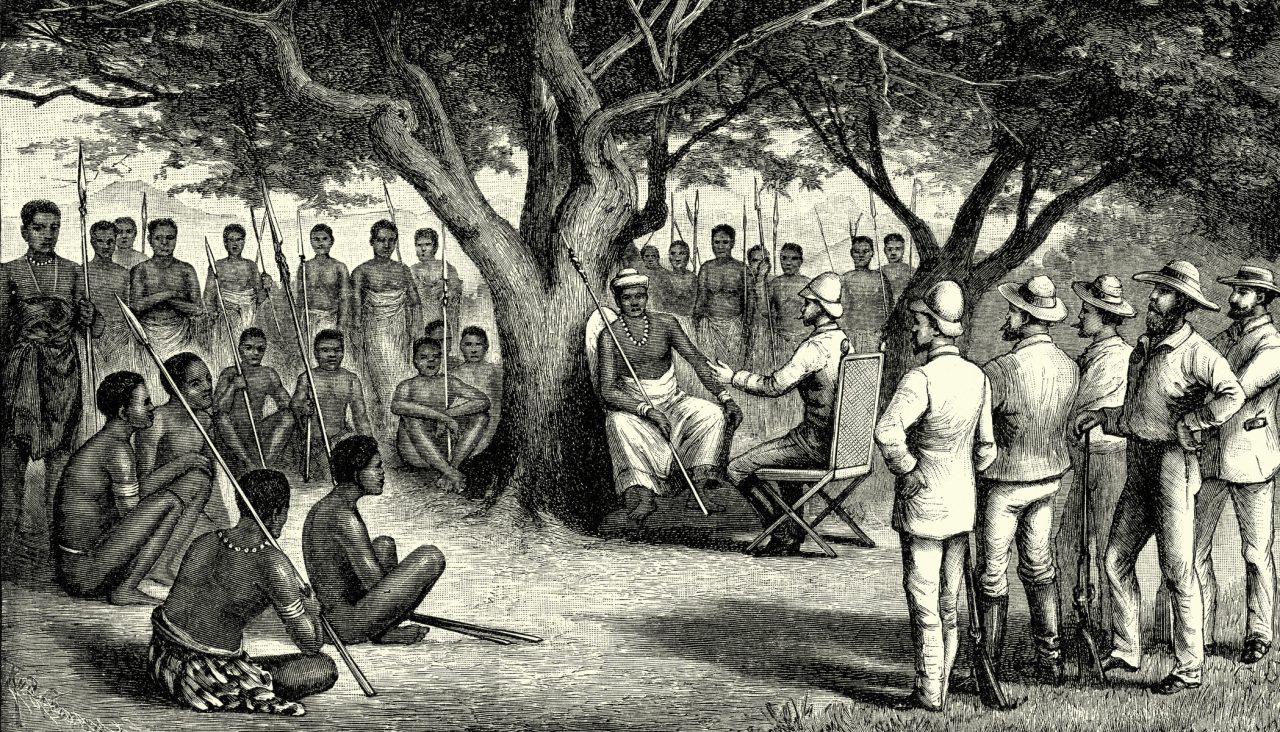
Illustrasjon fra 1800-tallet av et møte i Kongo mellom Europere og Afrikansk urfolk
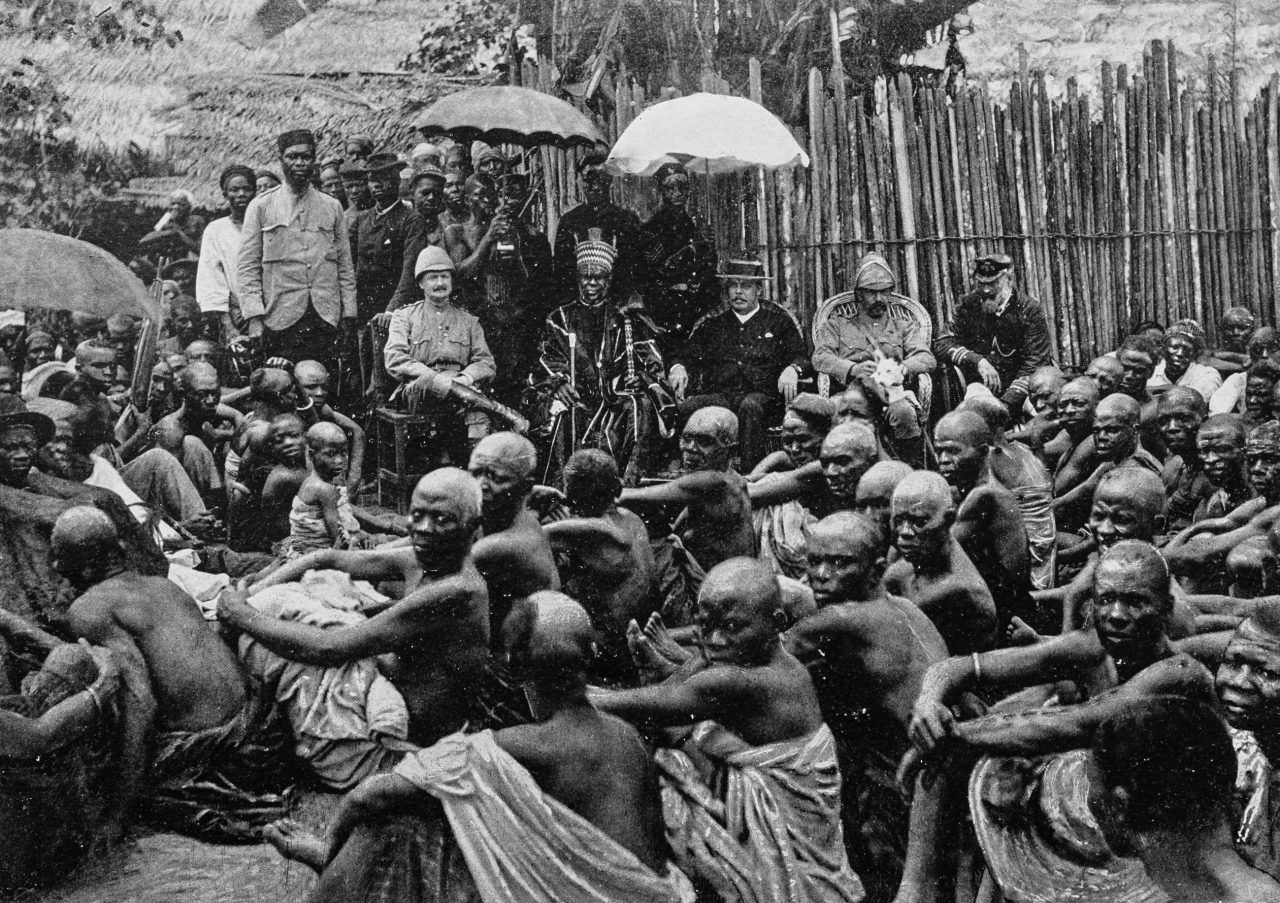
Antique photograph of the British Empire: Annexation of the territory of the king of Ado
The first phase
In the 16th century, European countries began to take control of areas in both South and Central America. This period lasted until the 19th century. During this period, slaves were brought from Africa for work. The main focus of this period was trade.
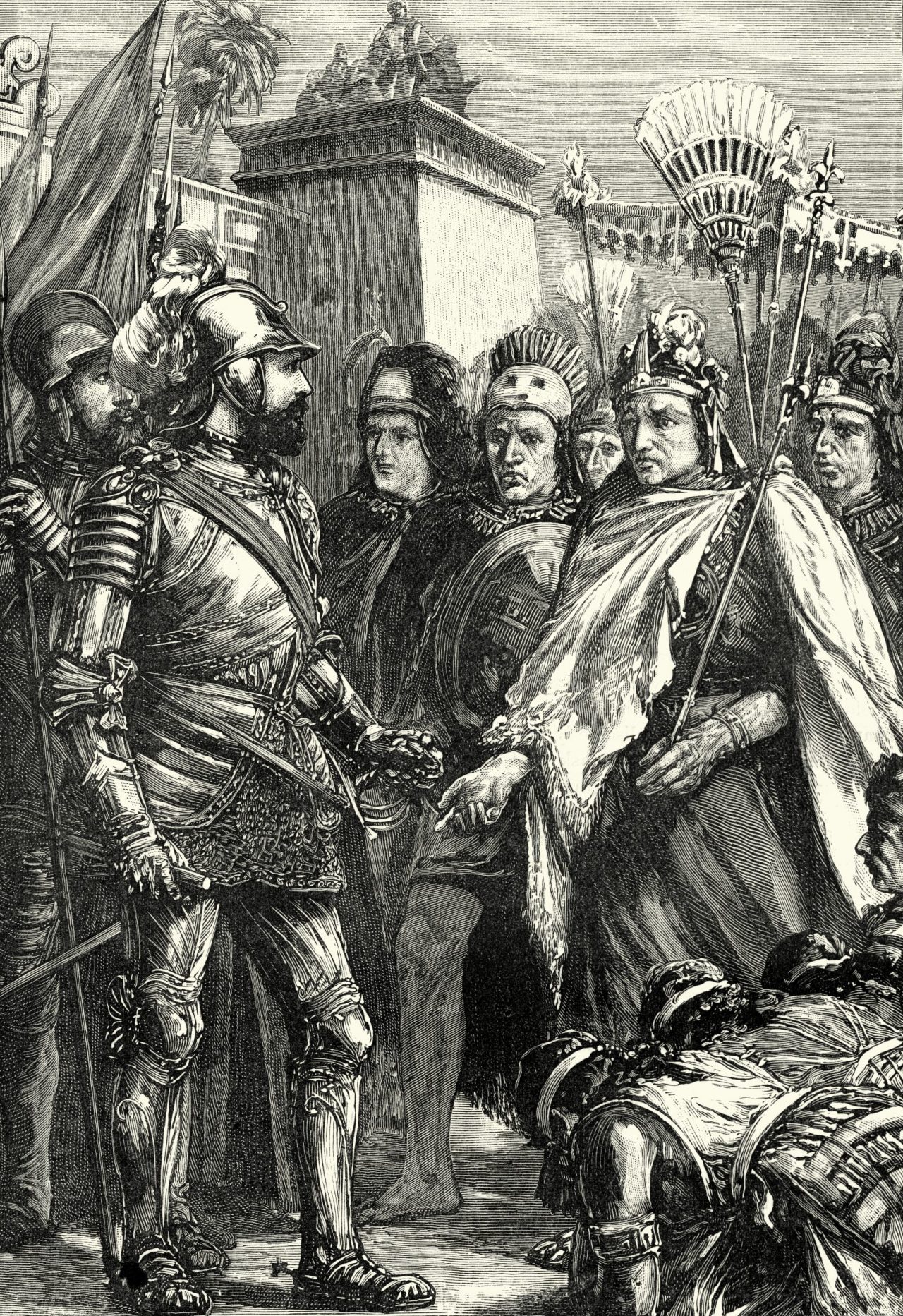
The second phase
The second phase started in the 19th century and lasted until 1914 when the First World War started. Several European countries had already had colonies for a long time, but now new countries joined the fight to control new land. There was a race to get the most colonies across both Asia and Africa. These areas were often taken with the use of weapons and force. This period is called Imperialism.
📷 Emperor Menelik II of Ethiopia opposed Italian colonisation at the end of the 19th century
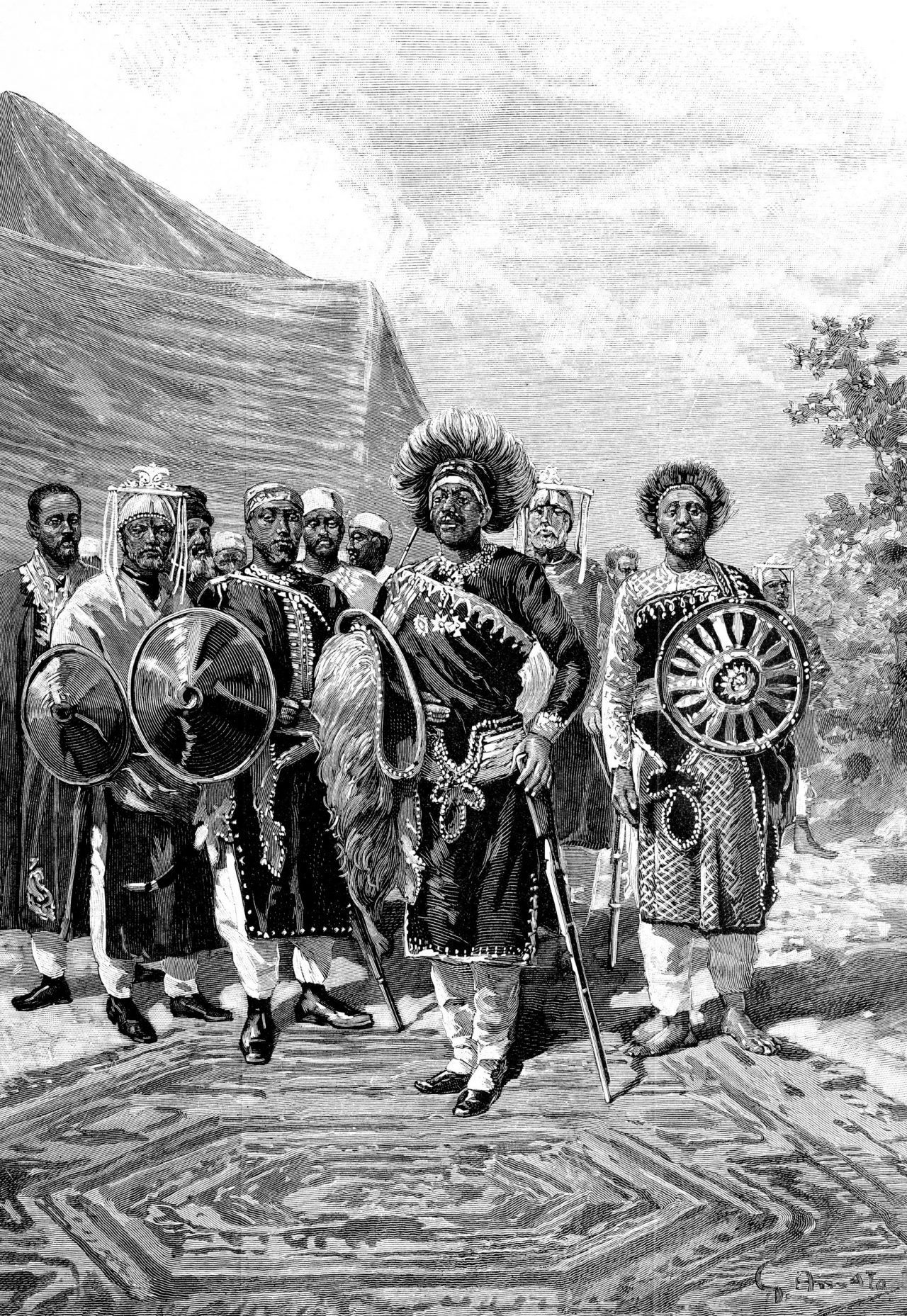
Decolonisation
Most colonies got their independence back after the end of World War Two. In 1960, the UN decided that all colonies should get their freedom back and that it was no longer legal to create new colonies.
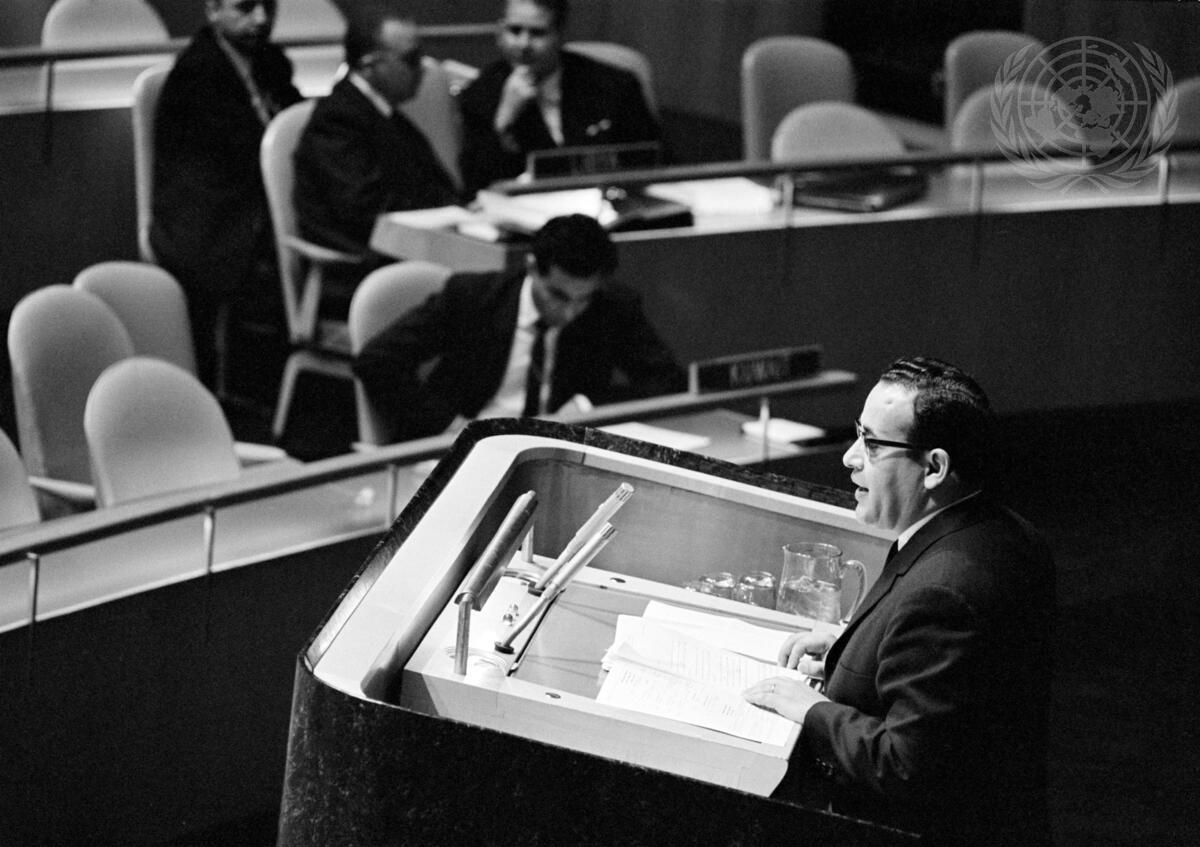
What happened to the colonies?
The colonies lost money when raw materials and goods were taken out of the country. The local people were not paid well for their goods and it became very difficult for many of the old colonies to found industries and build their economies once they became independent. Many people in the colonies felt subordinate to the colonial powers, and in many places, the old traditions and culture had been set aside for those of the colonial powers.
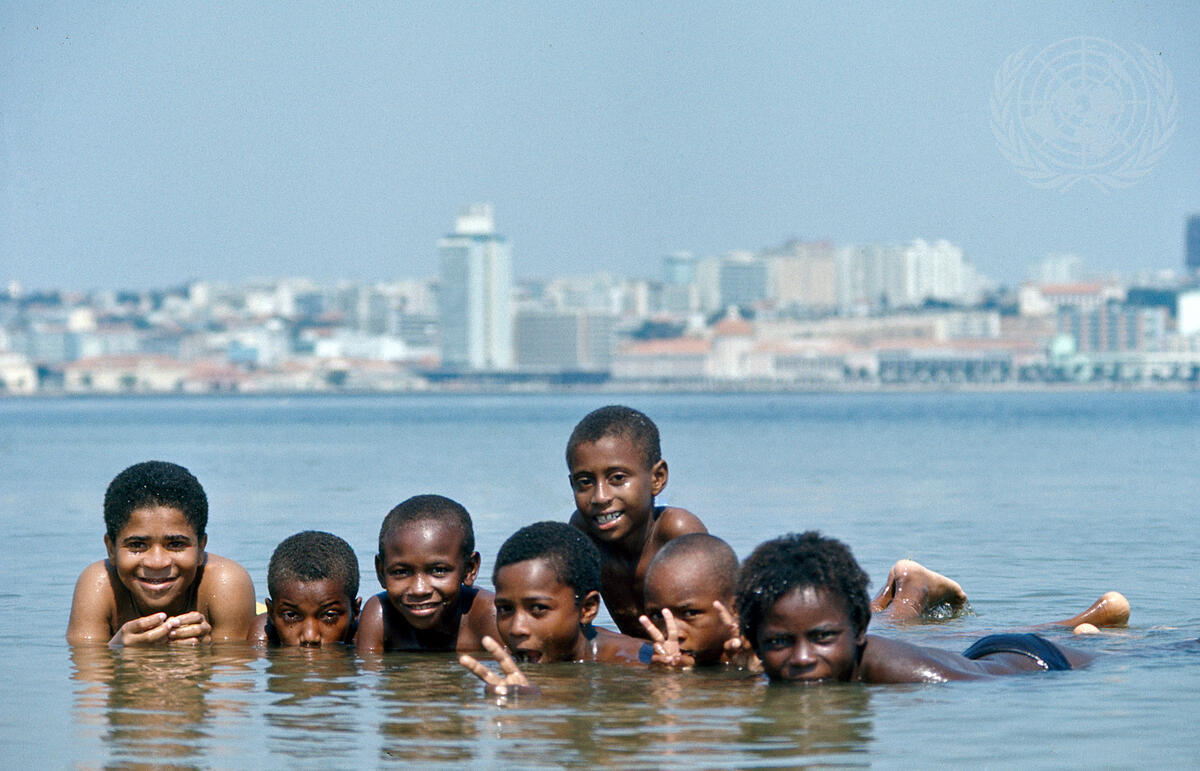
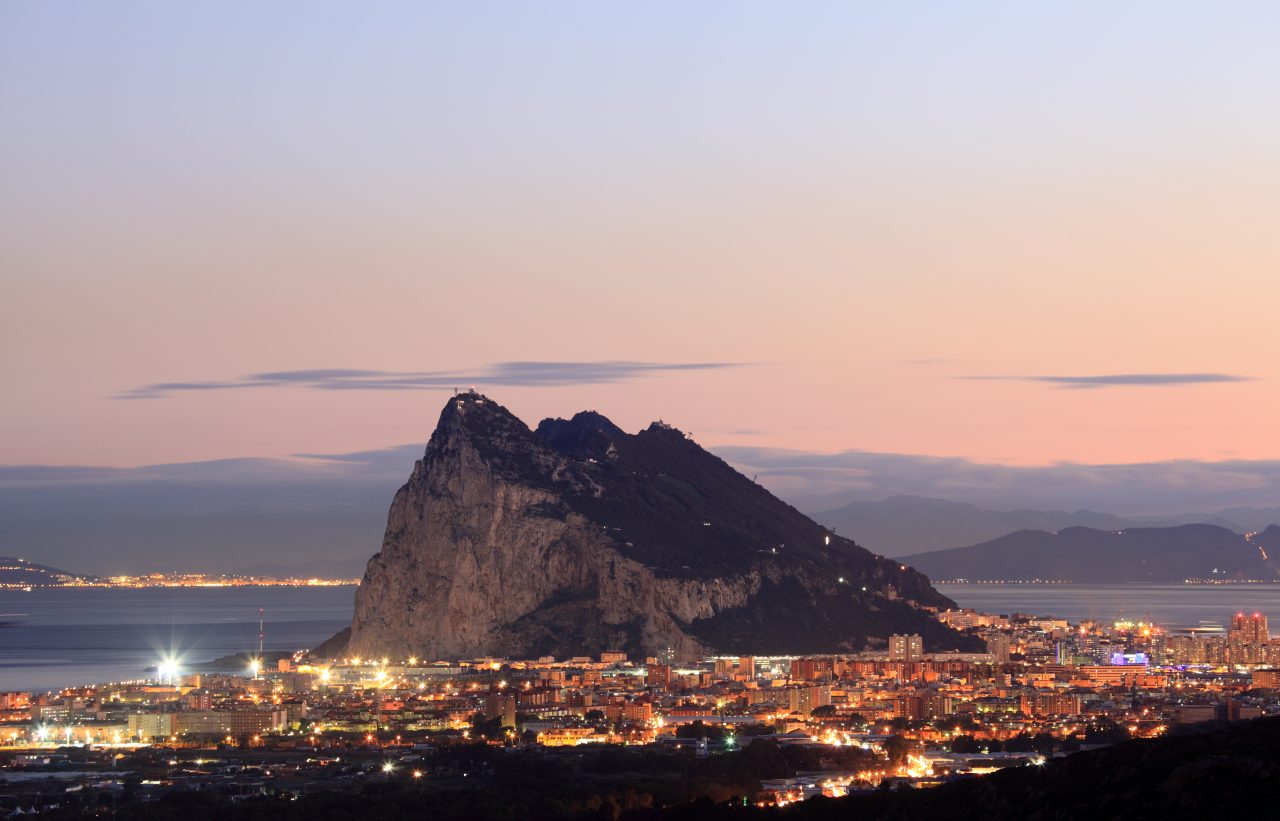
Gibraltarklippen
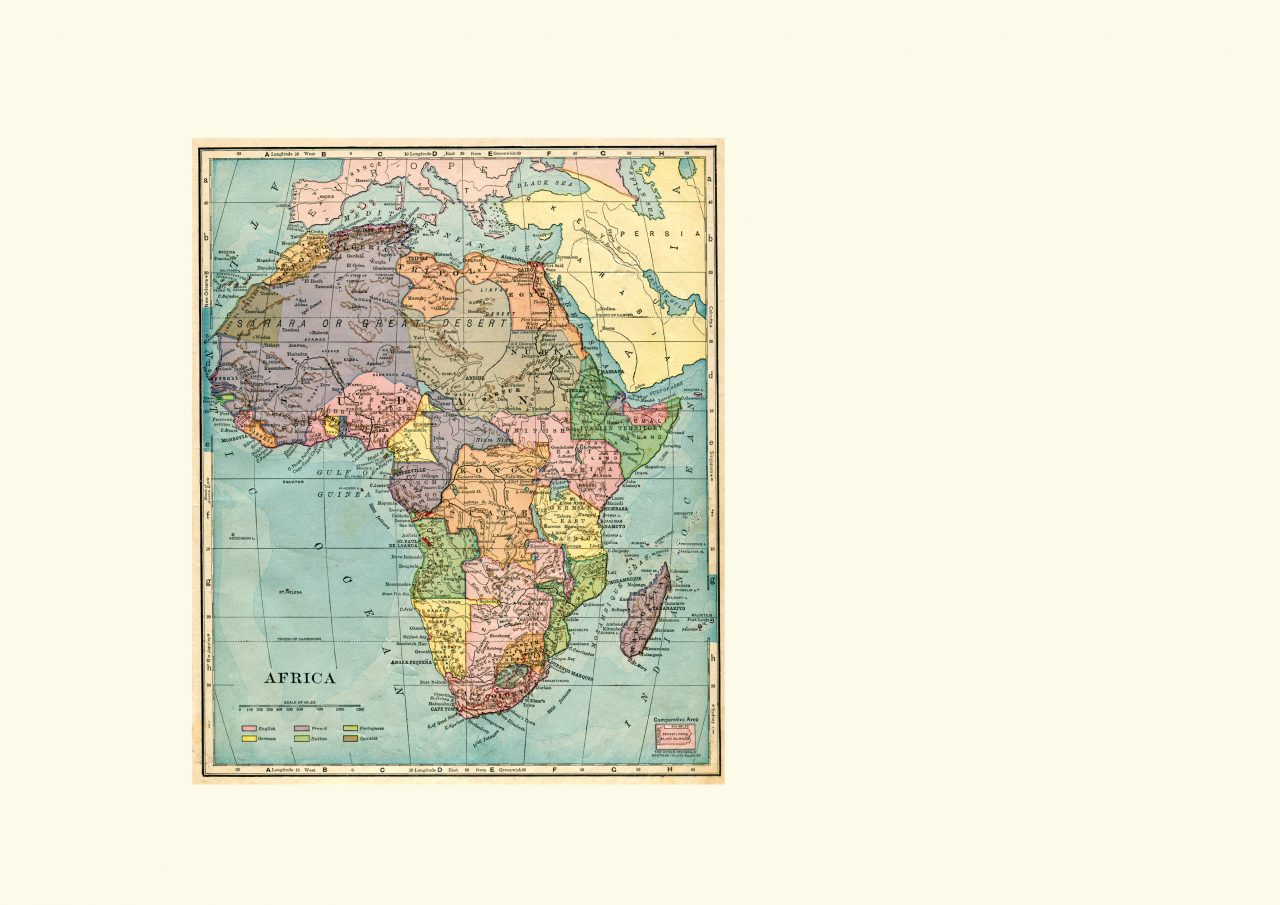
Kart over Afrika som viser kolonier fra 1896
Sources:
- kolonialisme i Store norske leksikon på snl.no.
Hentet 7. januar 2021 fra https://snl.no/kolonialisme
- Gibraltar i Store norske leksikon på snl.no.
Hentet 7. januar 2021 fra https://snl.no/Gibraltar
- study.com (07.01.2021):How Colonialism Spread Languages: Summary & Examples
https://study.com/academy/lesson/how-colonialism-spread-languages-summary-examples.html
- ndla.no (07.01.2021):Kolonialismenhttps://ndla.no/nb/subject:9/topic:1:182163/topic:1:164660/?filters=urn:filter:9132d125-4d8f-41a6-b61d-77741662d5a9
Media rights:
-
-
Getty Images
-
Getty Images
-
Getty Images
-
Getty Images
-
UN Photo / Yutaka Nagata
-
UN Photo / Jean Pierre Laffont
-
Getty Images
-
Getty Images
-


